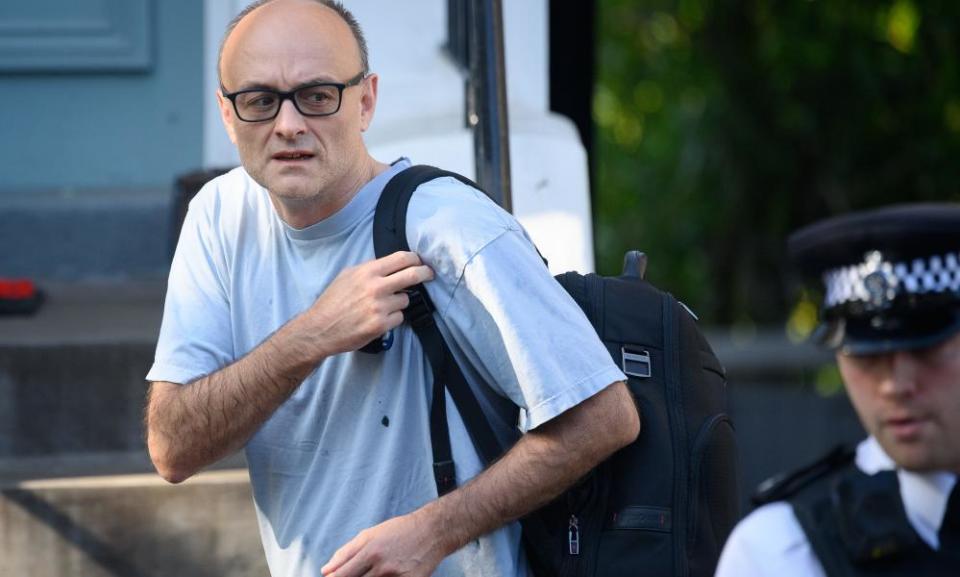What does Durham police's statement on Dominic Cummings tell us?

The formal statement from Durham police on Dominic Cummings’ travels to the county during lockdown is sufficiently cautious that both the prime minister’s chief adviser and his accusers are likely to quote elements to support their arguments. Here we analyse key sections of the statement.
The trip from London to Durham
On 27 March 2020, Dominic Cummings drove to Durham to self-isolate in a property owned by his father.
Durham constabulary does not consider that by locating himself at his father’s premises, Mr Cummings committed an offence contrary to regulation 6 of the Health Protection (Coronavirus, Restrictions) (England) Regulations 2020. (We are concerned here with breaches of the regulations, not the general government guidance to “stay at home”.)
Analysis:
The force does not say Cummings was right or wrong to drive from London to Durham. Instead, its statement draws the clear distinction between government guidance and legislation.
The government has failed to align the law as set out in the health protection regulations with NHS or government guidance, and such ambiguities over personal responsibility have repeatedly arisen during the pandemic.
Regulation 6 in the emergency regulations is the one that deals with the list of “reasonable excuses” for someone to be away from their home, of which there are many. The excuses in force at the beginning of April have since been amended.
The ‘test drive’ to Barnard Castle
On 12 April 2020, Mr Cummings drove approximately 26 miles from his father’s property to Barnard Castle with his wife and son. He stated on 25 May 2020 that the purpose of this drive was to test his resilience to drive to London the following day, including whether his eyesight was sufficiently recovered, his period of self-isolation having ended.
Durham constabulary have examined the circumstances surrounding the journey to Barnard Castle (including ANPR [automatic number plate recognition], witness evidence and a review of Mr Cummings’ press conference on 25 May 2020) and have concluded that there might have been a minor breach of the regulations that would have warranted police intervention. Durham constabulary view this as minor because there was no apparent breach of social distancing.
Had a Durham constabulary police officer stopped Mr Cummings driving to or from Barnard Castle, the officer would have spoken to him, and, having established the facts, likely advised Mr Cummings to return to the address in Durham, providing advice on the dangers of travelling during the pandemic crisis. Had this advice been accepted by Mr Cummings, no enforcement action would have been taken. In line with Durham constabulary’s general approach throughout the pandemic, there is no intention to take retrospective action in respect of the Barnard Castle incident since this would amount to treating Mr Cummings differently from other members of the public.
Analysis:
The key phrase that Durham constabulary “have concluded that there might have been a minor breach of the regulations that would have warranted police intervention” will come under close legal analysis.
Several legal commentators immediately focused on the conditional point. David Allen Green tweeted: “The ‘might’ in the statement means that the police would have ‘considered’ that there was a breach for the exercise [of] the 8(3)(a) power. It would not be for the police officer to determine criminal liability: that is a matter for the court.”
He added: “The Durham police statement is confusingly worded but what it means, legally, is that a police officer would have been in a position to exercise their power under 8(3)(a), which in turn means they would have considered Cummings to have committed an offence.”
Similarly the Secret Barrister, an anonymous criminal legal expert, tweeted: “The police having considered the evidence have expressed the view that Cummings did break the law.”
No further action – police policy
Durham constabulary has not taken retrospective action against any other person.
By way of further context, Durham Constabulary has followed government guidance on management of alleged breaches of the regulations with the emphasis on the NPCC and College of Policing 4Es: Engage, Explain and Encourage before Enforcement.
Finally, commentary in the media has suggested that Mr Cummings was in Durham on 19 April 2020. Mr Cummings denies this and Durham constabulary have seen insufficient evidence to support this allegation.
Therefore Durham constabulary will take no further action in this matter and has informed Mr Cummings of this decision.
Analysis:
The statement makes clear the force is not going to pursue Cummings – or anyone – retrospectively. On the matter of the claims that Cummings was seen in Durham on 19 April, officers did not make a definitive ruling.

 Yahoo News
Yahoo News 